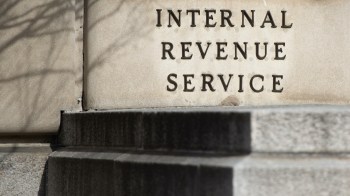A couple of changes might be coming to a 1040 near you. Both of them could increase the government’s tax revenue haul.
In October, the IRS announces the maximum annual limits on 401(k) contributions. Those limits are tied to inflation, and because inflation is so low, it’s possible the limit may drop from $16,500 to $16,000. That does not include employer contributions.
Now, most people aren’t making enough money to be affected by this, but those who are will see their income tax increase, assuming the amount is lowered. They’ll have to pay tax on the $500 difference. It’ll be income instead of a tax-free contribution which makes compound interest over the years.
I know in most camps, that won’t generate much sympathy, but people over 50 will also be affected. Their cap could drop from $22,000 to $21,000, based on what our reporter Jeremy Hobson is telling me. He’s doing a story for tonight’s Marketplace.
The prickliest point here is probably the message it sends. At a time when many people are trying to rebuild their decimated nest eggs, the government might be removing some of the straw from the nest.
At the same time, the IRS is considering a deeper look into disparities between income and mortgage payments. The goal is to catch people who are clearly paying mortgage interest but who aren’t filing a tax return or who don’t seem to have enough income to cover that mortgage interest. The IRS says there might be $1.4 billion in tax revenue out there.
But the program could also ensnare non-tax cheats — people who are living off their savings. From the Wall Street Journal:
“We shouldn’t presume that these struggling families are tax cheats just because they continue to make their mortgage payments despite losing their income,” said Rep. Charles Boustany (R., La.), the ranking minority member on the House Oversight Subcommittee.
Highly paid former employees of investment banks who lost their jobs in the financial crisis but who, thanks to their savings, are still making their mortgage payments, could also draw scrutiny under the IRS plan, said Tom Ochsenschlager, vice-president for taxation at the American Institute of Certified Public Accountants.
Obviously, those people will just have to prove they have the savings to make the payments, but when it comes to the IRS, “just having to prove” anything is rarely a simple matter.
There’s a lot happening in the world. Through it all, Marketplace is here for you.
You rely on Marketplace to break down the world’s events and tell you how it affects you in a fact-based, approachable way. We rely on your financial support to keep making that possible.
Your donation today powers the independent journalism that you rely on. For just $5/month, you can help sustain Marketplace so we can keep reporting on the things that matter to you.


















